Madama
Butterfly
Giacomo Puccini
Japanese tragedy in three acts
Libretto: Giuseppe Giacosa, Luigi Illica
World premiere: 17 February 1904, Regio Teatro alla Scala, Milan
Polish premiere: 3 December 1908, Teatr Wielki, Warsaw
Premiere of this production: 29 May 1999, Teatr Wielki – Polish National Opera
In the original Italian with Polish surtitles
'Is it possible for a man such as Puccini… to become an inert and ridiculous puppet in the hands of a woman… Could the common urge to indulge himself outweigh his dignity as a man and an artist?' ranted the publisher, Giulio Ricordi, when Puccini interrupted his work on Madama Butterfly. And the composer? Already famous, yet still insatiable and overwhelmed by the charm of a Turin beauty, he decided to abandon the mother of his son and his current obligations for her. The spark, however, fizzled out as fast as it had been kindled and Puccini managed to finish his opera before falling for another woman. An opera about love, fidelity and death. The moving story of a Japanese girl who gets baptized for the sake of an American, Benjamin Franklin Pinkerton, and believes that feelings can triumph over cultural differences, had its premiere in 1904 at La Scala. The staging by Treliński from 1999, which has since enjoyed a cult status, plays out in ascetic movements and minimalist frames. It juxtaposes timeless beauty with the melancholy of loss. This refined production about lifelong and at the same time ephemeral love brought the director worldwide acclaim and has captivated the audiences at the Washington National Opera, the Mariinsky Theatre in Saint Petersburg, Palau de les Arts Reina Sofía in Valencia and the Israeli Opera in Tel Aviv. For the last two decades it has invariably delighted and touched the public at the Teatr Wielki.
Cast
Credits
Synopsis
Sponsors
-
Mecenas Teatru Wielkiego - Opery Narodowej
-
Partnerzy Teatru Wielkiego - Opery Narodowej
-
Patroni medialni
-
Patron of Teatr Wielki – Polish National Opera
-
Partners of Teatr Wielki – Polish National Opera







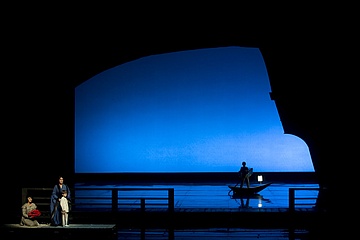
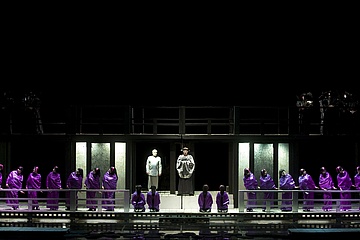
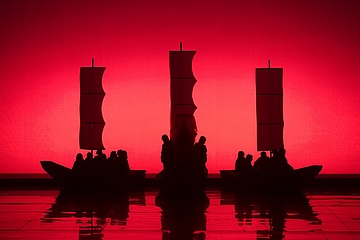
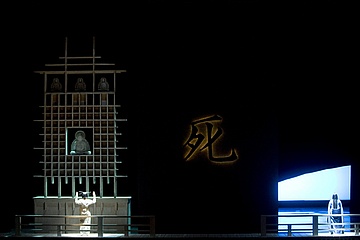
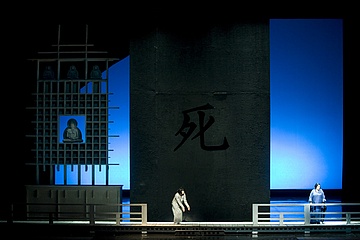
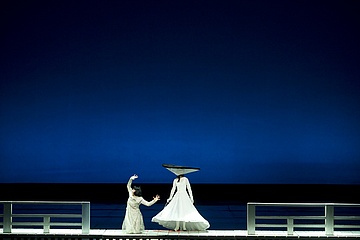
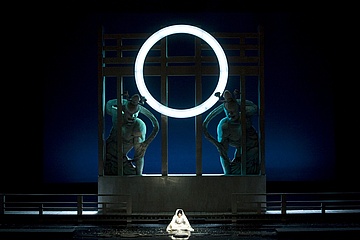
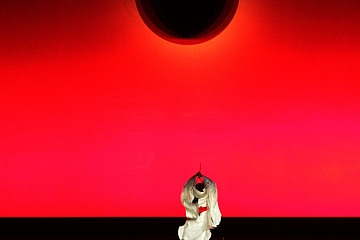
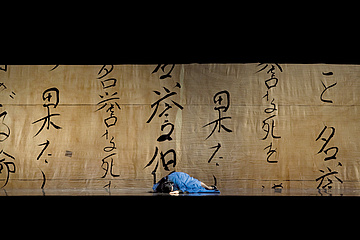


 Mateusz Zajdel
Mateusz Zajdel  Mieczysław Milun
Mieczysław Milun  Paolo Lardizzone
Paolo Lardizzone  Bernadetta Grabias
Bernadetta Grabias  Krzysztof Szmyt
Krzysztof Szmyt  Łukasz Karauda
Łukasz Karauda  Irina Bertman
Irina Bertman  Mariusz Godlewski
Mariusz Godlewski  Magdalena Idzik
Magdalena Idzik  Aleksandra Orłowska
Aleksandra Orłowska  Agata Schmidt
Agata Schmidt  Mariusz Treliński
Mariusz Treliński ![[Translate to English:] Boris Kudlička](/fileadmin/_processed_/7/a/csm_Boris_Kudlicka_4424_www_8b991ee181.jpg) Boris Kudlička
Boris Kudlička  Magdalena Tesławska
Magdalena Tesławska  Paweł Grabarczyk
Paweł Grabarczyk ![[Translate to English:]](/fileadmin/_processed_/f/4/csm_Emil_Wesolowski_fot._Pawel_Roslon_mini__e5d48cae55.jpg) Emil Wesołowski
Emil Wesołowski  Stanisław Zięba
Stanisław Zięba ![[Translate to English:]](/fileadmin/_processed_/9/7/csm_Carlo_Montanaro_370x370_0e7e8ec0ed.jpg) Carlo Montanaro
Carlo Montanaro 




